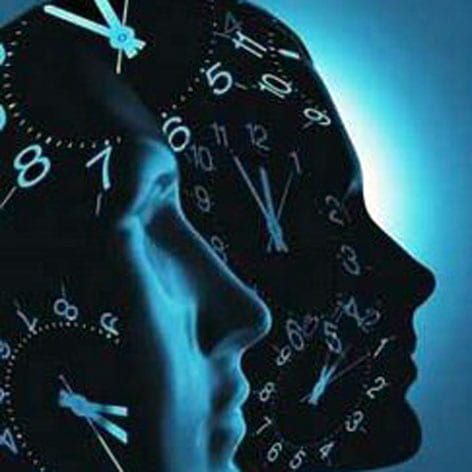Watching the body clock for better health
Paolo Sassone-Corsi is perhaps the world’s leading researcher on the body clock, and what he’s discovered may one day improve human health.

Embedded in our genes is a “clock” that regulates when we sleep, when we are awake and when we eat. This human clock manages what are known as circadian rhythms, 24-hour biological cycles that adapt our bodies to the light-dark pattern of day and night.
These rhythms explain why we sleep at night and are more active during the day. They are behind our need to eat multiple meals a day. And, according to Paolo Sassone-Corsi, UCI Distinguished Professor and chair of pharmacology, they are giving us new clues about chronic diseases, metabolic disorders and aging.
“Circadian rhythms are an ancient biological regulator system based on the light-dark cycle, which is as old as our planet,” Sassone-Corsi says. “We’ve learned that up to 15 percent of our genes are regulated by these rhythms and that disruption of them can profoundly influence human health – causing obesity, diabetes, insomnia, depression, heart disease and cancer.”
Although recognition of circadian rhythms dates back to the days of Alexander the Great, scientific study of them is barely a century old. And Sassone-Corsi is perhaps the world’s leading expert in this field.
Over the past 15 years, he has found the key molecular switches that turn circadian rhythms off and on. Since joining the UCI faculty in 2006, Sassone-Corsi has published research studies in Nature, Science and Cell, detailing how circadian-rhythm proteins work with other cellular proteins to modulate cell aging, metabolism, and heart, brain and digestive functions.
These findings have profound implications for future drug development aimed at curbing cell dysfunction and death, thereby helping solve such major medical problems as cancer and diabetes.
Just as importantly, Sassone-Corsi says, these findings reveal that good health depends on staying in balance with our natural rhythms.
People who disrupt their body clock – night workers who sleep during the day or those who eat meals irregularly, for example – have been found to be much more prone to eating disorders and metabolic diseases of the liver, heart and kidneys.
“When this balance is upset, normal cellular function can be disrupted,” Sassone-Corsi says. “By having an unhealthy lifestyle, we impose on our body clock a number of stresses that lead to illness.”
“It is important to continue learning more about the processes of circadian rhythms,” he adds. “With increased knowledge, we can begin to develop interventions – both behavioral and pharmaceutical – that can help maintain and restore good human health.”